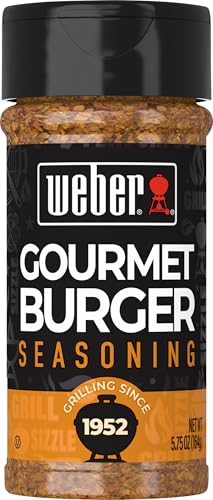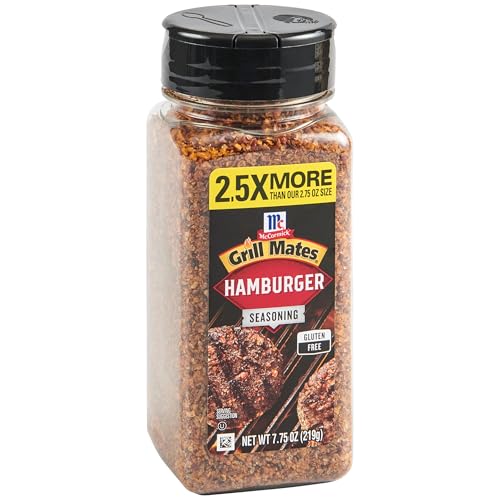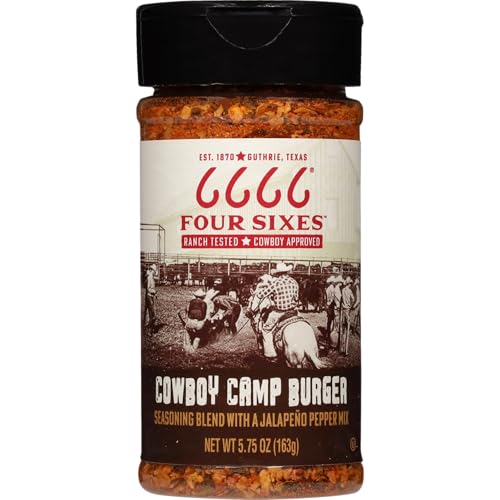Key Takeaways
- Proper Wrapping is Essential: Always wrap burgers tightly in airtight freezer bags or plastic wrap to prevent freezer burn and maintain texture.
- Choose the Right Meat: Opt for ground beef with a higher fat content (around 20%) to ensure juicy, flavorful burgers after freezing and thawing.
- Avoid Common Freezing Mistakes: Cool burgers before freezing, avoid overcrowding in the freezer, and consider portioning to make defrosting easier.
- Thaw Safely: Use the refrigerator, cold water method, or microwave to safely thaw burgers without risking bacterial growth.
- Cook with Care: Ensure burgers are cooked to an internal temperature of 160°F to maintain safety and juiciness, and avoid overcooking for the best texture.
- Monitor Freezing Duration: Consume frozen burgers within three to four months for optimal taste, and keep an eye out for any signs of spoilage before cooking.
If you’re like me, you love a good burger but sometimes find yourself with more patties than you can cook in one sitting. Freezing burgers is a fantastic way to keep that deliciousness on hand for those busy days when cooking feels like a chore. But if you want to make sure they taste just as good when you pull them out of the freezer, there are some best practices to follow.
Understanding Freezing Burgers
Freezing burgers opens up a world of possibilities, especially for those of us who love experimenting with flavors. When done correctly, frozen burgers maintain their quality and make it easy to whip up a delicious meal anytime.
Importance of Proper Freezing
Proper freezing ensures burgers retain their juicy flavor and texture. It’s important to wrap them tightly to prevent freezer burn, which can lead to dry, unappealing burgers. Use airtight freezer bags or plastic wrap, and squeeze out as much air as possible before sealing. Label each bag with the date, so you know when to use them. Ideally, you’ll consume frozen burgers within three to four months for the best taste.
Common Mistakes in Freezing
Many enthusiasts make mistakes that impact the quality of their frozen burgers. Here’s a list of common pitfalls to avoid:
- Not sealing tightly: Leaving air in the packaging leads to freezer burn.
- Freezing without cooling: Placing warm burgers directly into the freezer can raise the temperature, affecting other items.
- Overloading the freezer: Crowding prevents air circulation, which can lead to uneven freezing and quality loss.
- Skipping portioning: Freezing burgers in bulk may cause difficulty in defrosting only what you need.
By steering clear of these mistakes, you’ll create and preserve amazing burgers that friends and family will rave about.
Best Practices for Freezing Burgers
Freezing burgers offers a fantastic way to preserve flavor and convenience. To make sure burgers stay juicy and delicious, I focus on a few key methods that enhance the freezing process.
Choosing the Right Type of Burger
Choosing the right type of burger for freezing plays a significant role in the outcome. I prefer using high-fat content ground beef, usually around 20% fat. This fat adds moisture and flavor, preventing the burgers from drying out during freezing. Blend in seasonings or other flavor enhancers, like cheese or herbs, before forming the patties for an extra burst of taste that carries through the freezing process. Avoid using super-lean meats; they can result in a dry texture after thawing.
Preparing Burgers for Freezing
Preparation is crucial for successful freezing. First, shape the patties to my desired thickness, generally around ¾ inch, ensuring even cooking later. Next, I create small indents in the center of each patty. This technique helps prevent them from puffing up as they freeze, keeping them nice and flat for grilling. Season generously with salt and pepper right before freezing to lock in flavor. Flash-freezing the patties, placing them on a baking sheet in a single layer for about an hour before transferring them to storage bags, also helps maintain their shape.
Wrapping Techniques
Wrapping burgers properly prevents freezer burn and maintains their texture. I use high-quality plastic wrap to tightly cover each patty individually. After that, I place them in heavy-duty freezer bags or vacuum-seal them for added protection. Always remove as much air as possible to extend shelf life and keep those flavors intact. Label the bags with the date and type of burger so I can easily keep track of my creations.
Thawing Frozen Burgers
Thawing frozen burgers properly is essential to maintain their quality and flavor. Using the right methods ensures burgers retain juiciness and prevent bacterial growth.
Safe Thawing Methods
- Refrigerator Method: Place the frozen burgers in the refrigerator for several hours or overnight. This method keeps burgers at a safe temperature, allowing them to thaw gradually without risking bacteria growth.
- Cold Water Method: Seal the burgers in a leak-proof bag and submerge them in cold water. Change the water every 30 minutes. This process thaws burgers quickly while avoiding heat exposure.
- Microwave Method: Use the defrost setting on your microwave. This method is quick but requires immediate cooking afterward, as it may partially cook the edges.
Tips for Cooking Thawed Burgers
- Check Temperature: Use a meat thermometer to ensure burgers reach an internal temperature of 160°F for safety.
- Avoid Overcooking: With thawed burgers, cooking them until just done helps maintain their juicy texture.
- Season Generously: Apply salt and spices right before grilling. This enhances flavor without drawing out moisture during cooking.
- Use a Grill or Cast Iron Pan: High heat creates a delicious sear on the outside, locking in juices and flavor. Adjust heat as necessary to avoid burning.
Mastering these thawing techniques and cooking tips transforms the humble burger into a culinary delight, ready to impress anyone at your next gathering.
Storing Frozen Burgers
Storing frozen burgers properly ensures they maintain their amazing flavor and texture. Following a few guidelines can make a significant difference in how well your burgers turn out.
Duration for Freezing
I recommend freezing burgers for no longer than three to four months for the best taste and quality. After this time, the risk of freezer burn and loss of flavor increases. If you’re an adventurous cook like me, try labeling your burger packages with the date and style, so you always keep track of your creations. Don’t freeze patties that’ve already been cooked; once cooked, they generally last about two to three months in the freezer too.
Signs of Spoilage
Recognizing signs of spoilage is crucial. If you notice changes in color, such as a grayish hue or ice crystals forming on the patties, it’s time to toss them. A sour or off smell also indicates spoilage. When in doubt, trust your senses—better safe than sorry! Keeping track of your freezing duration and signs of spoilage helps ensure every burger you serve rivals the best ones.
Conclusion
Freezing burgers is a fantastic way to save time and enjoy delicious meals whenever I want. By following the best practices I’ve shared, I can ensure my burgers remain juicy and flavorful even after being frozen.
I love the flexibility that comes with having prepped patties ready to go. Plus experimenting with different flavors makes cooking a fun adventure.
With a little care in wrapping and storing, I can keep my burgers in peak condition. So here’s to enjoying great homemade burgers anytime I crave them!





